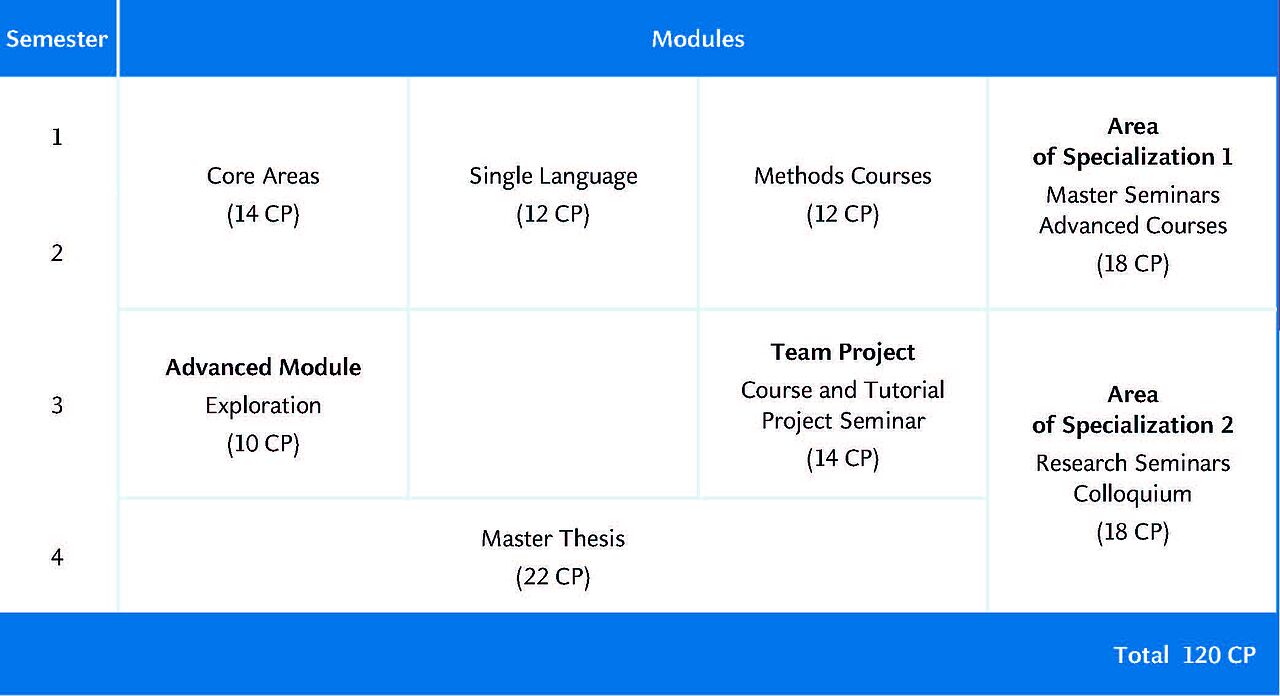Start of Studies - Master Linguistics
Master’s Program in Linguistics
The program is research-oriented and furthers methodical and theoretical knowledge that has been acquired in the Bachelor’s Program. It ties in with recent research and creates the necessary impetus for independent scientific work.
Apart from an expansion of the students’ general knowledge of linguistics, students will acquire detailed skills in a specific branch of linguistics and knowledge of a single, specific language. In the Tutorial Team Project, students will acquire didactic skills suited for higher education. They will also be trained in high-level team work.
Course of study
The program has five components:
- Professionalization in general linguistics
- Creation of an area of specialization in general linguistics
- Currently Morphology / Syntax / Typology, Semantics / Pragmatics, Computational Linguistics, Phonetics Phonology, Neuro- / Psycholinguistics
- Improvement of language experience and in-depth study of a foreign language (e. g. English, French, Italian, Spanish, Japanese, or German as a foreign language)
OR - Acquiring of a new, non-Indo-European foreign language + the structure of a non-Indo-European foreign language
- A didactic practical course in terms of a tutorial to a Bachelor’s course (teamwork)
Career perspectives
Knowledge about the complexity of human languages - linguistics - is useful in many careers. These include the fields of electronic information processing, training of speech therapists, foreign language teaching, occupations in media and journalism, development of textbooks and
assistance in text production.
The additional qualification of the respective core areas add to the occupational outlook.
However, neither the Bachelor’s, nor the Master’s Program qualify for a job as a speech therapist or clinic linguist.
Dates and events
Schedule
Here you will reach the HIS-LSF
with this link you will reach the list of courses of the study programme in the HIS-LSF.



